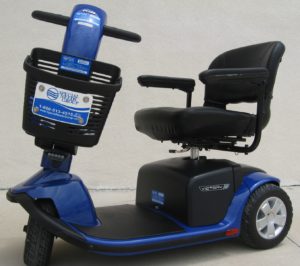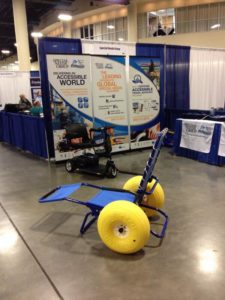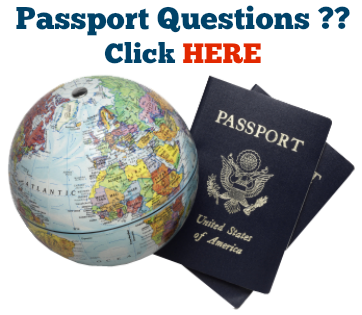The World is Now More Accessible Than Ever!
Traveling with special needs is now more accessible than ever before. Twenty percent (62 million) of the U.S. population has some form of disability and the number is increasing daily. These people need to, want to, and can travel. If you’re part of that 20%, a world of travel awaits you.
 Travel agencies who are accessible travel advocates certified by Special Needs Group have specialized knowledge. We know how to help individuals with disabilities enjoy a wonderful, hassle-free and memorable trip.
Travel agencies who are accessible travel advocates certified by Special Needs Group have specialized knowledge. We know how to help individuals with disabilities enjoy a wonderful, hassle-free and memorable trip.
Here are a few tips from Special Needs Group to ensure that when your next travel opportunity arises, you are ready to go. Sharing this information with your Travel Agent will help them to arrange your trip accordingly.
1) Outline Your Travel Needs
Take time to evaluate the logistics of your trip in relation to your ability to keep pace. What modes of transportation will you be using? Airplane, motor coach, train, ship, transit vans for ground transfers? Make a list for your travel agent so you don’t miss anything.
Next, make a list of your specific requirements. Be honest: what types of special  needs equipment do you depend on at home? What do you use or need when shopping, sightseeing locally or attending events close to home?
needs equipment do you depend on at home? What do you use or need when shopping, sightseeing locally or attending events close to home?
Can you hear and see clearly without special auditory equipment or visual aides? How far can you walk without a rest break? Are stairs difficult? Can you get in and out of the tub or shower at home without handgrips or other assistance?
Travel, whether solo or in a group, is no time for roughing it or trying to “tough it out.” If a wheelchair, scooter or portable oxygen will make your trip easier, place that item on your list. Many people who do not use wheelchairs or walkers at home feel more comfortable using these mobility aides for tour and excursions. In fact, most of Special Needs Group’s wheelchair and scooter rentals are to individuals who only use such aides when traveling.
2) Plan Ahead
If you already own a scooter or portable oxygen, it’s important to know the policy for bringing that equipment onboard. This includes all the transport vehicles in your itinerary, from planes to taxis to ferry boats. This is where a certified accessible travel advocate is nice to have. They can help you to determine the rules and regulations to see what steps will be needed prior to traveling.
Does that transport have a way to stow your scooter or wheelchair? Is oxygen allowed on board? Some airlines prohibit certain types of batteries, such as wet cell batteries, or oxygen cylinders. Airlines operate under strict rules, so there may be packing procedures to follow if they do allow the equipment. Keep in mind, most airlines need at least 48 hours’ notice to make special arrangements, and be prepared to fill out forms.
Overall, cruise ships are more lenient in allowing oxygen, but some disallow certain types of oxygen. All require that the oxygen be delivered to the ship, and that you have enough for the entire voyage. Oxygen may never be brought aboard in your luggage. Requirements vary, so check your cruise line for proper instructions. Again, documentation and paperwork are required.
Whether you are headed for a cruise ship, hotel or all-inclusive resort, your Travel Agent/Advocate can help. Is there wheelchair access for any or all of the places you will be visiting on the trip? The earlier you book, the better your chances of securing fully accessible accommodations. And early booking increases your chances of securing a ground floor hotel room or cruise stateroom near the elevator.
Your Agent/Advocate can also check on any limited access in other public areas.
Will you have full access to public rooms, restaurants,  bars, swimming pool, beach area and other amenities during your trip? Are there TDD phone devices? How will you get in and out of the shower or bathtub? Are there flashing lights to accommodate hearing? Braille room numbers? Knowing in advance the scope of your needs gives your Agent/Advocate time to arrange advance rentals of any necessary equipment. Everything from scooters, lifts, ramps, TDD kits and special mattresses, including special needs cribs, is available for rental.
bars, swimming pool, beach area and other amenities during your trip? Are there TDD phone devices? How will you get in and out of the shower or bathtub? Are there flashing lights to accommodate hearing? Braille room numbers? Knowing in advance the scope of your needs gives your Agent/Advocate time to arrange advance rentals of any necessary equipment. Everything from scooters, lifts, ramps, TDD kits and special mattresses, including special needs cribs, is available for rental.
Will road travel or car excursions be part of the trip? Many car rental companies have vehicles that are modified for drivers or passengers with mobility limitations.
Also, when traveling with a limitation or disability, full travel insurance for medical coverage abroad and trip cancellation insurance very important and strongly advised.
3) Ask the Right Questions
When making the final bookings, be sure you ask the right questions, even if the accommodations or cruise stateroom are categorized as “accessible.”
For example, are doorways wide enough for the largest wheelchairs? Do the doors open outwards or into the room?
Are all the public areas of the hotel, resort or ship accessible? Do you need to make special arrangements in the dining room to accommodate the wheelchair or scooter?
Will the bathroom facilities truly fit your needs? Is the bathroom large enough for the wheelchair or scooter? Is there a roll-in shower? Grab-bars?
Are there facilities for companion/assistance animals?
Are there shopping and entertainment facilities close by if you are staying at a hotel or resort?
On shore excursions or tours, does the van have a lift and method for transporting wheelchairs and scooters?
Basically, don’t take anything for granted. Your Agent/Advocate can make arrangements for almost every situation.
Harshman Travel would be happy to be your Agent/Advocate and we look forward to helping you with all of your accessible travel needs!








